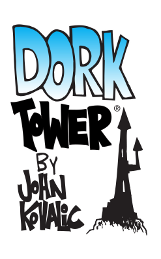Ken and Robin Consume Media: If It Sounds Crazy, It Must Be a Manga Adaptation
November 1st, 2016 | Robin
 Ken and Robin Consume Media is brought to you by the discriminating and good-looking backers of the Ken and Robin Talk About Stuff Patreon. Each week we provide capsule reviews of the books, movies, TV seasons and more we cram into our hyper-analytical sensoriums. Join the Patreon to help pick the items we’ll talk about in greater depth on our new podcast segment, Tell Me More.
Ken and Robin Consume Media is brought to you by the discriminating and good-looking backers of the Ken and Robin Talk About Stuff Patreon. Each week we provide capsule reviews of the books, movies, TV seasons and more we cram into our hyper-analytical sensoriums. Join the Patreon to help pick the items we’ll talk about in greater depth on our new podcast segment, Tell Me More.
The Pinnacle
Lady Snowblood (Film, Japan, Toshiya Fujita, 1973) Katana-wielding woman trained from birth as a remorseless avenger pursues the four criminals who murdered her father and raped her mother. Pioneer of arterial spray, seminal influence on Miike, Kitano and Tarantino, this no-holds barred manga adaptation stands as the most artful exploitation movie ever committed to celluloid. Now gorgeously restored.—RDL
Moonlight (Film, US, Barry Jenkins, 2016) A young man, seen as a withdrawn kid, bullied teen and finally a street-toughened mid-level drug dealer, struggles to come to terms with his addict mother and a sexuality he cannot safely express. Luminous, exquisitely acted character piece with a sure instinct for soundtrack music well deserves its Oscar buzz.–RDL
Recommended
From the Dark (Film, Ireland, Conor McMahon, 2014) Lost in the Irish countryside as night falls, Sarah (Niamh Algar) and Mark (Stephen Cromwell) must evade a lucifugous vampire (Ged Murray) dug up in a peat bog. McMahon’s tight, straightforward script plays cat-and-mouse well, varying threats and resources throughout while cinematographer Michael Lavelle’s indirect, low-light, out-of-frame shots of the creature give a master tutorial in monster movie making. –KH
The God of the Labyrinth (Fiction, Colin Wilson, 1970) The conclusion of the Gerard Sorme trilogy follows Wilson’s alter ego Sorme on a quest to uncover the truth about the 18th-century Irish rake Esmond Donelly — and incidentally to become a kind of tantric superman. Wilson pioneers the “intellectual thriller” genre (most famously debauched by Dan Brown) in the strict form of the pornographic novel, because even when he’s kind of awesome, he’s still more than a little exasperating. –KH
Into the Inferno (Film, US, Werner Herzog, 2016) Documentary journeys across the globe with volcanologist Clive Oppenheimer to explore the science of volcanoes, and the mythologies of those who live near them. Awe-inspiring imagery stands at the center of this typically Herzogian mix of wonder, horror, and whimsy.–RDL
The Handmaiden (Film, South Korea, Park Chan-wook, 2016) Poor young girl sent during the occupation of Korea to serve as personal maid to a sheltered Japanese noblewoman isn’t as innocent as she seems–but then neither is anybody else. Luxurious surfaces speak as loudly as words in this twisting tale of passion, perversion and betrayal.–RDL
The Seven Five (Film, US, Tiller Russell, 2014) Interview-and-archival-footage doc recounts the case of epically corrupt Brooklyn patrol cop Michael Dowd, who rode the late 80s-early 90s crack wave with lunatic disregard for the law and his chances of getting caught. Perhaps even more jaw-dropping than the story itself is the undisguised glee with which the principal perpetrators let rip their crazy anecdotes.—RDL
Good
Count Yorga, Vampire (Film, US, Bob Kelljan, 1970) A Bulgarian vampire (Robert Quarry) arrives in hip Los Angeles and assembles a harem of Brides, opposed by their loved ones and Dr. Hayes (Roger Perry), a blood specialist. This fast-paced modern Gothic might well have been Recommended if the script didn’t betray its hastily written soft-core origin with a wasted scene or three and some less-than-robust characterization. If you dock points for bad AIP lighting and shoestring AIP budgets, drop it to Okay. –KH
Crosscurrent (Film, China, Yang Chao, 2016) Young barge captain Chun (Qin Hao) pilots his ship up the Yangtze, setting course by a book of poetry he finds in the engine room, meeting the mysterious girl An Lu (Xin Zhilei) at every port. I say “setting course” rather than “plotting course” because I don’t want to give the impression that any plotting happens in the film. But speaking of the setting, the industrial, drowned, and finally primordial Yangtze is the real star, lensed by Mark Lee Ping-Bing (Wong Kar-Wei’s cinematographer) in the style of Song Dynasty black-ink scroll paintings. An Wei’s dark, cello-driven score ideally complements the journey, but drink coffee before you start or you’ll nod off and miss another perfect shot or five. –KH
The Night Sister (Fiction, Jennifer McMahon, 2015) The brutal murder of a family reveals three generations of secrets surrounding a disused motel and old country legends of shapeshifters known as mares. Contemporary gothic notable for its strong characterizations and the ultimate niceness of its horror.–RDL
Man Without a Shadow (Fiction, Colin Wilson, 1963) The second volume in the Gerard Sorme trilogy opens where Ritual in the Dark left off, and follows Wilson stand-in Sorme through a very convoluted series of love affairs and an entanglement with sex magician (and Crowley manque) Caradoc Cunningham. Wilson wrestled with the form of his “novel of ideas about reality” and decided on the not-very-felicitous answer of a diary, which makes this one even talkier than usual. –KH
Thermae Romae II (Film, Japan, Hideki Takeuchi, 2014) Master builder of Roman baths Lucius (Hiroshi Abe) resumes his waterlogged time journeys to modern Japan to acquire the tech required to save the pacific regime of his beloved Emperor Hadrian. Affectionate paean to bathing culture commits sincerely to its kooky premise. And yes, of course it’s based on a manga.—RDL
Topaz (143-minute DVD version) (Film, US, Alfred Hitchcock, 1969) Based on Leon Uris’ interminable spy novel about French agent Andre Deveraux (Frederick Stafford), who stumbles onto both the Cuban Missile Crisis and a Soviet spy ring in France. Uris and then a second writer quit on Hitch during the script process, leaving him to hastily plan a film around an unfinished two-and-a-half-hour Samuel Taylor script; both Sean Connery and Yves Montand turned down the role of Deveraux, leaving him with the handsome but stiff Stafford; Hitchcock couldn’t direct his original ending because of his wife’s illness, rendering it bathetic instead of cathartic. As a final blow, Bernard Herrmann refused to come back and do the score, which became a weirdly jaunty waltz by Maurice Jarre. With any of those problems fixed, this would have been Recommended; with all of them fixed, it would be a Pinnacle, as Hitchcock experiments brilliantly here with color and story. Instead, it’s a string of gemlike sequences (many of them Recommended, and one death scene a Pinnacle) that never really become jewelry. –KH
Okay
Taste the Blood of Dracula (Film, UK, Peter Sasdy, 1970) Fusty would-be libertines enlist a young aristocrat to lead them into debauchery, but come to regret his plan to use Dracula’s blood to ritually sell their souls to Satan. Christopher Lee’s Dracula embodies the return of the repressed in this literate but none-too-scary entry in the Hammer series.—RDL
A Wolf at the Door (Film, Brazil, Fernando Coimbra, 2013) When a working class couple’s child is abducted, police suspicions fall on the husband’s mistress. Sunlit domestic noir conjures a realistic set of characters but could stand a tighter edit.—RDL















Leave a Reply